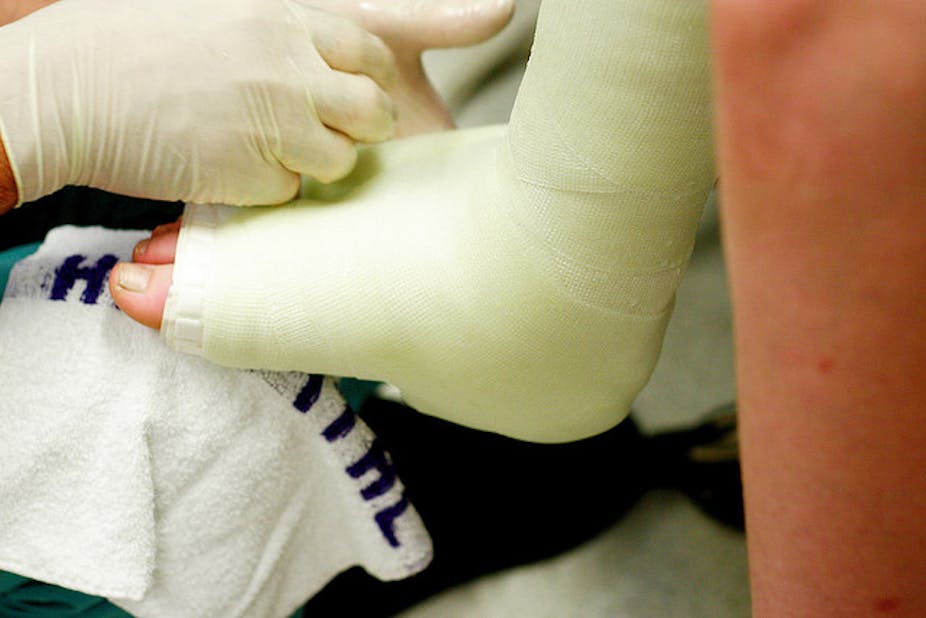“When people get sick or injured or want advice about their health, they want to see a doctor,” Dr Andrew Pesce, AMA President.
At one time, when people got sick, injured or wanted advice about their health, they would see a doctor because that was the only choice there was.
These days, there are many more choices – and people seem to like that. Being able to choose gives a person more say and control over what happens to them.
The bad old days
My kids are now adults, but I haven’t forgotten what it was like to sit in the Emergency Department of our local hospital for hours on end with a screaming child who needed a few stitches or a plaster on their arm, surrounded by other screaming children needing stitches or plasters.
Looking back, the whole experience seems like some kind of weird torture!
The doctors were all busy attending to complex traumas or heart attacks – I knew I had to wait while they saved a life or two, but all I really wanted was for my kids to be seen by someone who could do the job required so I get as far away from the place as possible.
Moving on
These days, all I would have to do is take my kids to a Walk-in Centre staffed by Nurse Practitioners. I’d be in and out again in an hour or so, all fixed up.
Sounds like bliss to me.
And going by the popularity of the Walk-in Centre they’ve set up in the ACT at the Canberra Hospital, it seems like other people are just as happy to see a Nurse Practitioner.
Well over 10,000 patients visited the nurse-led clinic in its first twelve months. People are voting with their feet – towards the Nurse Practitioners.
Some people will still only ever want to see a doctor when they get sick or injured or want advice about their health. And I think it’s good to have that choice.
But I’m more than happy to see a Nurse Practitioner if the problem seems pretty simple. I know my body, I know my family – and most of the time we don’t need high-powered technical skills or complex medical treatment.
Sometimes I hear people say, “But what if the nurse misses something? They are ‘only nurses’ after all!” My response to that? Consider our education and experience, and then decide.
So what is a nurse Nurse Practitioner?
My main job at the moment is a nurse academic who teaches student nurses and graduate nurses. But I’m also an endorsed Nurse Practitioner who continues to work at the coalface treating patients. So I know the kind of education and experience Nurse Practitioners have behind them.
These days, Registered Nurses hold Bachelor degrees, while Nurse Practitioners have a Clinical Masters degree and at least five years experience in their specialty field.
Yes, maybe they could miss something – but so could a doctor. So could any health professional who isn’t competent, for that matter.
Really, what is most important is that Nurse Practitioners know the limits of their practice. For example, if the person comes to us and has a problem that lies outside of our area of expertise, we’re more than happy to refer them on to another health professional who will be able to help them.
This is part of our job – believe me, we’re not territorial, there’s more than enough sickness and injury to go around.
So when we think, “Hey, there seems to be something a bit different about this one…” or “Hmmm, I think I’m going to need to talk to someone else about this one…”, we’ll refer the person on to a doctor – or a psychologist, a social worker, a welfare officer, a physiotherapist, an occupational therapist, a counselor… the list is endless really.
The “trick” is to find the right health professional to suit – and it’s a part of the Nurse Practitioner’s role to work out who that is.
The Nurse Practitioner is also good at following up – which means we make it our business to contact the person, after they’ve gone home, and make sure they’re okay or getting the help they need.
Patient choice
I don’t like to limit myself. Yes, when I need someone with a biomedical background and some great technical skills, I’ll go to a doctor.
But when I need a competent and well-educated health professional with the skills to help me with day-to-day health issues; who has the time to spend listening to me and answering my questions; who believes in considering all aspects of my life – not just the physical or biological, but also the mental, psychological, social, sexual, spiritual and functional sides of things; and who provides me with compassionate care… then I’m more than happy to see a Nurse Practitioner.

